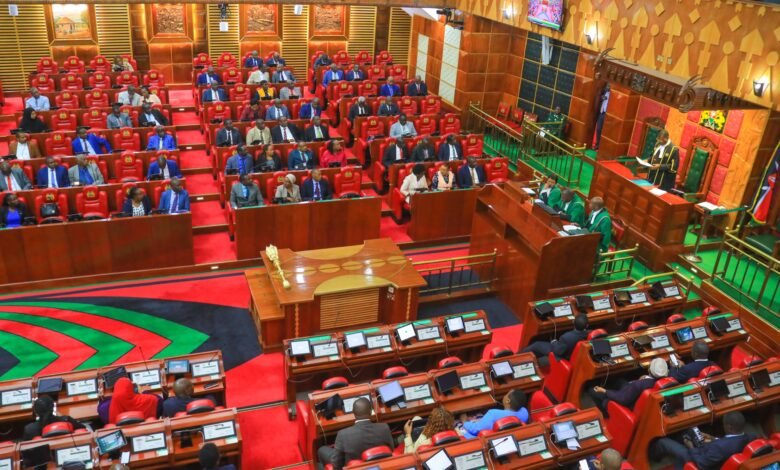
Kenya introduced sweeping reforms to its business and financial space, with the enactment of the Business Laws (Amendment) Act, 2024 (Act No. 20 of 2024) on December 27, 2024.
The legislation introduced wide-ranging changes aimed at strengthening financial stability, enhancing consumer protection, and improving the overall ease of doing business. Its provisions cut across banking, microfinance, manufacturing, and special economic zones, reflecting the government’s effort to modernize regulation and attract investment.
In the financial sector, one of the most notable changes is the phased increase in minimum core capital requirements for banks and mortgage finance institutions.
Institutions will now be required to raise their capital from Ksh.1 billion to Ksh.10 billion by 2027, a move designed to fortify the stability of Kenya’s banking system.
Alongside this, the Central Bank of Kenya (CBK) has seen its mandate broadened to cover non-deposit-taking credit providers such as buy-now-pay-later platforms, peer-to-peer lenders, and credit guarantee businesses.
These entities, previously operating in a loosely regulated space, will now be subject to licensing and strict compliance with CBK guidelines. The law also prescribes stiffer penalties for non-compliance, reinforcing the regulator’s ability to ensure discipline and accountability within the sector.
Microfinance Industry
Oversight of non-deposit-taking microfinance institutions has shifted from the Microfinance Act to the CBK Act, bringing them fully under the central bank’s regulatory framework.
These institutions will now be compelled to adhere to new transparency requirements, including clear disclosure of credit costs and borrower rights.
At the National Treasury, the Cabinet Secretary is expected to issue additional regulations to guide conduct in this space, signaling a more consumer-centric approach to microfinance services.
Also Read: Report: Kenya’s Banking Sector Remains Strong as Capital Buffers Exceed Regulatory Minimums
Manufacturing Sector, SEZs
For the manufacturing sector, the amendments focus on strengthening product standards and compliance. Businesses are now required to register with the Kenya Bureau of Standards (KEBS) and meet tougher obligations around testing, labeling, and traceability.
To support this, the establishment of KEBS-certified laboratories and calibration facilities will enhance quality control and ensure Kenyan products align more closely with international standards. This is expected to boost the competitiveness of local manufacturers in global markets.
Special Economic Zones (SEZs) have also been a major focus of the reforms. The Act clarifies the duration of incentives and tax benefits available to SEZ developers and enterprises, giving investors greater predictability. It also explicitly exempts goods sold within customs-controlled areas of SEZs from duties and taxes as long as they remain in those zones.
At the same time, penalties for operators who fail to maintain proper financial records have been significantly increased, with fines now set at Ksh.5 million from Ksh.300,000. The penalty of imprisonment for a term not exceeding six months has been removed.
Cabinet Secretary Mandate
To simplify operations, the Cabinet Secretary has been granted powers to establish a “one-stop shop” for applications and to set minimum investment thresholds for SEZs, further streamlining processes for investors.
Beyond sector-specific changes, the Act promotes ease of doing business more broadly by mandating the accreditation of conformity assessment institutions through the Kenya Accreditation Service. This measure is intended to harmonize standards across industries, ensuring businesses operate within a consistent regulatory framework.
Taken together, the Business Laws (Amendment) Act, 2024 represents one of the most comprehensive overhauls of Kenya’s business environment in recent years.
By expanding the CBK’s oversight, raising the bar for financial institutions, tightening standards in manufacturing, and clarifying incentives in SEZs, the reforms seek to create a more stable, transparent, and investor-friendly economy.
As the changes take root in 2025 and beyond, their success will hinge on effective implementation and the ability of regulators and businesses alike to adapt to the new framework.






Zaproxy dolore alias impedit expedita quisquam.
WONDERFUL Post.thanks for share..more wait .. …
What’s Taking place i am new to this, I stumbled upon this I’ve discovered It positively useful and it has aided me out loads. I hope to give a contribution & aid different users like its helped me. Great job.
Perfectly composed articles, Really enjoyed examining.
It’s exhausting to search out educated folks on this subject, however you sound like you already know what you’re talking about! Thanks
Good info. Lucky me I reach on your website by accident, I bookmarked it.
**mindvault**
mindvault is a premium cognitive support formula created for adults 45+. It’s thoughtfully designed to help maintain clear thinking
Hi, Neat post. There’s an issue together with your web site in web explorer, might check this… IE still is the market chief and a large component of other folks will miss your excellent writing due to this problem.
I like this site so much, saved to favorites.
I really enjoy studying on this internet site, it has got excellent blog posts.